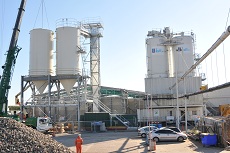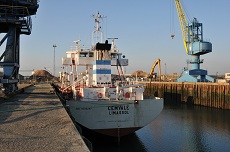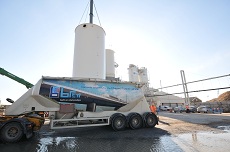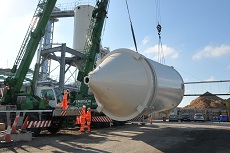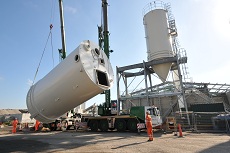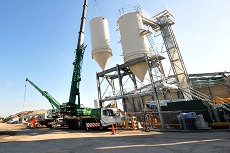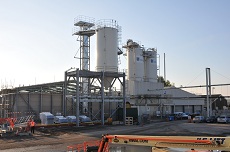The Brett Group's Second Cement Terminal At Ridham
It will more than double capacity at this site to over 300k tonnes/yr
2015 saw the construction of the Brett Group’s second cement terminal at Ridham in Kent. With cement being one of the key ingredients for concrete production, this second terminal was part of the original plans when the first terminal was constructed in 2006 and was always intended to be built when the market conditions were right. It will more than double capacity at this site to over 300k tonnes/yr. In combination, both terminals will primarily service our existing South East concrete and landscaping plants, handling GGBS from Germany and CEM1 from Spain.
It is important to Brett to gain a stable long term supply of competitively priced CEM1 (Portland Cement) and this new terminal will ensure access to a wider network of European based suppliers.
Because of the use of self-discharging ships, an important part of this project was to add a second pipeline so two ships can be unloaded at the same time. What’s more, both terminals will be operated from one control centre, thereby optimising tanker fleet coordination on site, reducing loading times and improving Health and Safety.
The build has been overseen by Ian Jordan, our Brett Project Manager, who said, “we used three experienced contractors for this build and the fact that they had all worked together previously has meant that for such a big project, the build has gone smoothly”.
Chris Chapman, Managing Director of Brett Concrete and the person who has developed our cement activity at Ridham says, “It’s vital that our customers feel they can rely on us for continuous access to the concrete they need and so securing a steady supply of a key raw material just makes good sense to us. Our investment in this second terminal at Ridham will ensure we can deliver with confidence both now and in the future.”
The new terminal is now open and fully operational.
The business has invested 4.5m in the construction of the new cement terminal at Ridham in Kent. (Pictures right).
The new terminal will increase capacity at this site to over 300k tonnes/yr.




